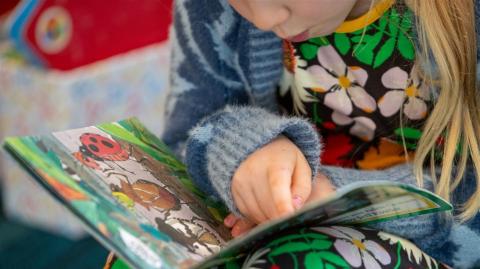
Kia ora,
We are already in the second half of the 2023 school year, and we hope that you and your team are managing to avoid the winter illnesses as best you can.
In this edition of Sharing the mahi, we are introducing our School Evaluation Report, which is the next stage of our reporting suite for schools in Te Ara Huarau. It’s an exciting next step in the transition to our new approach to evaluation, and I think you’ll like the report’s clear structure and focus on actions for improvement.
Also in this edition, we hear from Jenny Washington, Principal of Roydvale School, about her experience with ERO and her views on the new School Evaluation Report and take a look at our latest research including Preparing and Supporting New Principals and Alternative Education.
As always, we are interested to hear your thoughts. If you have feedback for our team, please pass it on to your ERO evaluation partner.

Introducing our School Evaluation Report
ERO first started introducing schools to the new evaluation approach, Te Ara Huarau back in 2020. As part of the first cycle of Te Ara Huarau, schools receive a one-off Profile Report, looking at a school’s improvement focus, its strategic goals, what it wants to achieve for learners and the results the school expects to see.
The Board Assurance with Regulatory and Legislative Requirements Report publicly reports a school board’s attestation to meeting legislative requirements, reports any non-compliances found and whether these have been addressed. These reports are usually published at the same time, along with Provision for International Students and Hostel Reports if relevant.
Some schools that were onboarded to Te Ara Huarau in its early stages will now be getting ready to move into their second Te Ara Huarau cycle. In place of a Profile Report, ERO will produce a School Evaluation Report. In most cases, a School Evaluation Report will be written within three years of a previously confirmed Profile or School Evaluation Report.
The School Evaluation Report is published on ERO’s website and is written in three parts.
The first part is a summary of the findings from the most recent ERO published report and subsequent evaluation. The report will be clear about what the school has achieved since the last ERO report.
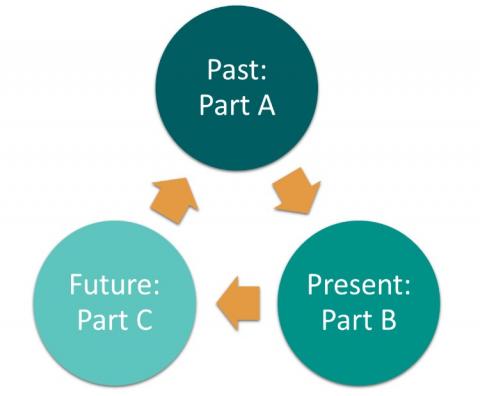
The second part provides an evaluative summary of learner outcomes and the school conditions to inform the school board’s future strategic direction, including education in Rumaki/bilingual settings. It gives a fuller picture of outcomes for learners and what is in place to support those outcomes. It also shares what needs improvement.
The third part of the report outlines priority actions prioritised for the school’s next improvement cycle and the expected outcomes.
The third part becomes the first part of the next school evaluation report. This enables a school’s progress to be shared from one improvement cycle to the next. Inclusion of priority actions will support a school board’s school’s strategic and annual planning and reporting process for ongoing schooling improvement.
Consultation with the sector
Prior to introducing the School Evaluation Report, we held focus groups with principals, parents and students to gather feedback about the report's content and style.
You told us that you wanted:
- close connection between the improvement goals set and the evaluation findings
- clear, specific priorities that would make a difference for learners
- reports that were easy to read and understand.
The final design of the School Evaluation Report considered all the feedback we received, and we thank everyone that contributed to this process.
Meet Shelley Booysen, Director Schools
Shelley Booysen has recently been appointed ERO’s Director Schools in Review and Improvement Services and is responsible for the programme of evaluation work in schools across Aotearoa New Zealand.
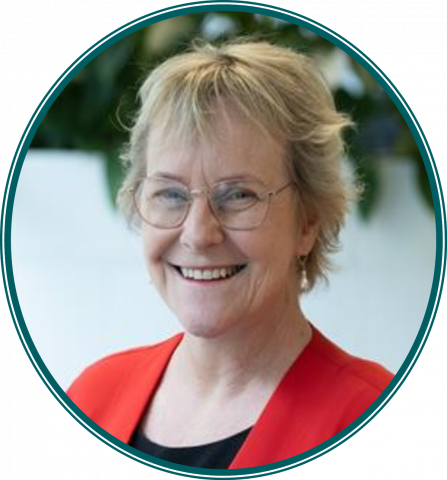
Shelley is no stranger to education, having worked in the sector for over 35 years. Shelley has been a secondary school teacher, senior leader and principal in New Zealand schools, and also spent time working in a development role in the Cook Islands.
Since joining the Education Review Office, Shelley has evaluated early childhood services, primary and secondary schools across the country, and was a pivotal part of our Pacific review programme team in Niue and Samoa.
Shelley has held leadership roles in methodology development, internal evaluation of ERO programmes, professional development, evaluation capability building with schools, and spent time in the Ministry of Education on secondment. She has also worked as ERO’s portfolio/private secretary to the Minister of Education.
Shelley’s current foci are onboarding the remainder of schools into Te Ara Huarau and ensuring that schools across New Zealand experience a consistently high quality evaluation experience that aligns to and supports each school’s improvement cycle.
Leader's spotlight - Jenny Washington
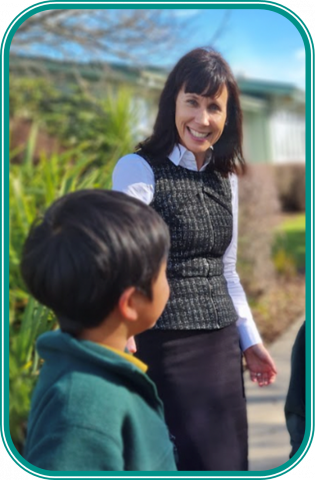
In this edition of Sharing the mahi, we share insights from Jenny Washington, Principal of Roydvale School, about her school's experience in Te Ara Huarau, her thoughts on the School Evaluation Report and what's most important for her school and community when it comes to ERO reports.
Q – Tell us about your school’s experience with ERO’s new approach to evaluation, Te Ara Huarau.
A - Our experience working within the new ERO model has been positive and professional. We have been working alongside our evaluation partner since March 2021. We appreciate that our school context is understood and recognised and our focus for improvement is agreed upon with our evaluation partner and written into action points.
These action points have been collaboratively designed, based on evidence that the school has provided. This approach is more rigorous as the school has to prove and share their evaluative processes that have led to their decision to work on the actions. The regular sharing of evidence with the evaluation partner has become part of the normal practice of our school leaders. This change in mindset reflects a more collaborative way of working, which is what our sector had requested.
Q – How would you compare ERO’s new school evaluation report to what has been produced in the past?
A - In the past the ERO reports graded schools and was compliance driven. The new report more closely reflects the areas of learning that the school is working on to improve student outcomes. This report is very transparent and clear in terms of the schools’ progress towards achieving the identified actions over time. It gives schools time to work on selected areas and acknowledges the work that schools have done in working towards the achievement of these goals.
Q – When it comes to ERO reports, what is most important for your school and your community?
A - It’s important for our school and community to understand how effectively our school is achieving the focus we have set. The reports are written in plain language for all the stakeholders in the community to understand and it is broken into three parts.
The initial profile report identifies the areas of focus, the report which is generally written three years later is about the progress the school has made towards achieving these actions. Therefore, it recognises the work that the school has committed to achieving these actions. The previous ERO model didn’t take into account the school’s needs and the progress they had made towards the actions.
Schools who need and require extra evaluative support are visited more regularly which means that ERO is able to identify these schools earlier and put in appropriate monitoring processes.
Kōkirihia: ending streaming in schools
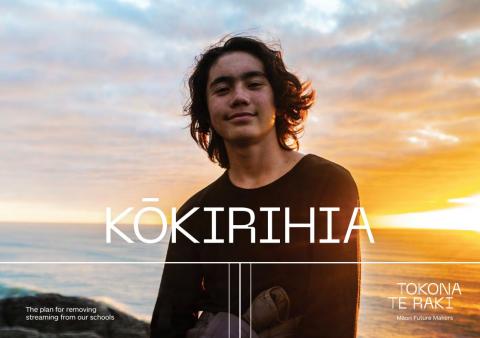
Earlier this year, Kōkirihia was launched in Ōtautahi Christchurch, calling the end to steaming in all schools by 2030. ERO has been involved in this piece of work, alongside a group of experts from various agencies and education sector bodies.
Research tells us that streaming has resulted in an education system with huge disparities and inequities. It has widespread negative impacts on learners among all demographics, but it is particularly damaging for our Māori and Pacific learners. Streaming significantly impacts learner self- esteem, self-belief, and potential, and creates trauma. It inhibits student choice, social cohesion, success, and actualisation of student potential.
There are alternative teaching practices that have proven to be hugely successful in empowering students to reach their full potential.
We know that this won’t happen overnight. Moving away from streaming will require significant commitment from our whole education community – students, whānau, hapū, iwi, communities, leaders, teachers, boards, unions, professional bodies, professional learning providers and government agencies.
What is ERO doing?
ERO supports the end of streaming in all schools, and our evaluation partners are having conversations with schools about ensuring all children and young people have effective, sufficient and equitable opportunities to learn.
We will also publish a good practice report on schools that have ended streaming.
Read Kōkirihia here: Ending Streaming | Tokona Te raki (maorifutures.co.nz)
Catch up on our latest research
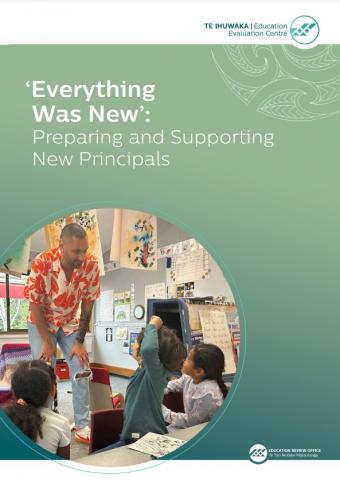
How do we set up new principals to thrive?
More than a third of our principals have less than five years’ experience in the role, and it’s important that they are set up for success. ERO looked at pathways and supports for new principals. We make a range of recommendations to improve how new and aspiring principals can be set up for success.
You can read the report and download our guide for school boards on our website.
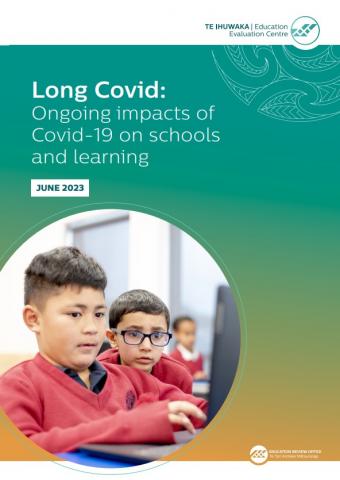
How are learners, teachers and leaders faring as we emerge from the Covid-19 pandemic?
Since 2020, the Covid-19 pandemic has caused significant disruption to schools, their staff, learners, and whānau. Three years on from the start of the pandemic, this report has found significant and concerning ongoing impacts on learners’ progress, particularly for learners in poorer communities, and on teachers and principals. You can read the report on our website.
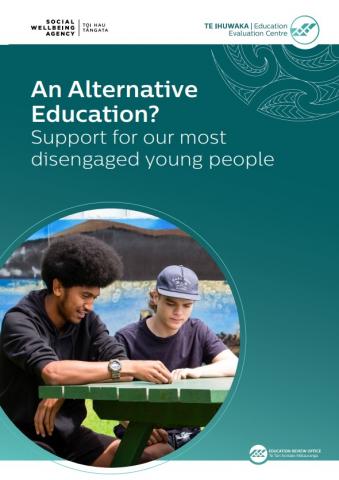
How well does alternative education support students to achieve?
Each year, Alternative Education provides education to over 2,000 young people who have been disengaged from education and who have high and complex needs. Many are exposed to crime, violence, and trauma, and just under a third have a mental health need. Almost two in five have been referred to attendance services and one in four have been suspended. This study describes what we found and what is needed to significantly improve education for these young people.
For more information about ERO and our mahi please visit ero.govt.nz
To be added to our mailing list for Sharing the mahi, please email us at ricomms@ero.govt.nz